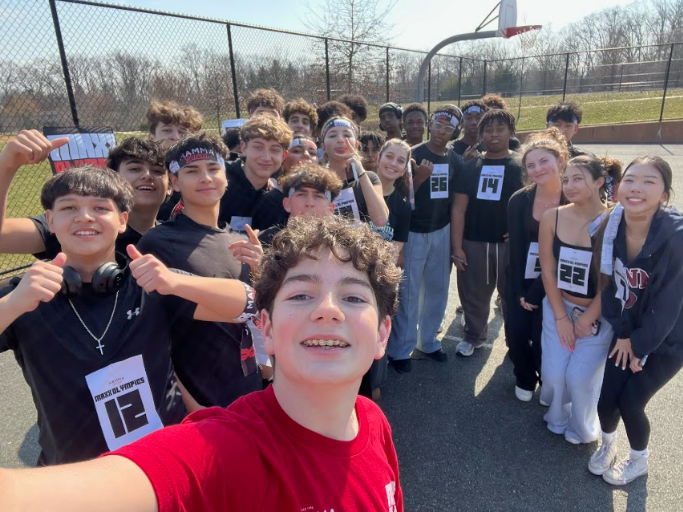When asked about the difference between a prank and vandalism, Rockville High School Educational Facilities Officer Christopher Winkler’s response was short and sweet.
“In the eyes of the law?,” Winkler replied. “Nothing.”
Many students are unaware of what defines vandalism and do not realize that their nightly pranks involving silly house decor are crimes punishable by law.
According to Winkler, vandalism is the malicious destruction of public or private property, regardless of permanent damage.
This can range from extremely violent actions, such as theft and the destruction of property, to a seemingly harmless toilet paper roll and farm fresh eggs tossed at someone’s house.
Consequences of vandalism can consist of anything from mild ones, such as fines or community service, to the more severe, such as incarceration.
“It depends on the circumstance and the value of the damage,” Winkler said. “It scales up. If it’s a misdemeanor it can be community service or restitution of some sort. For a felony, there is a possibility of jail time.”
One particular form of vandalism popular among CHS sports teams is defacing a team member’s house. Whether it involves dressing it in toilet paper or decorating it with forks, it is a common ritual for many.
“It’s a tradition,” junior Alexis Shay said. “Every player on the soccer team has been toilet papered, some more than others, some worse than others depending on the landscape of your house and if you have a dog that won’t shut up. But everyone knows it’s just out of love.”
In addition to toilet papering, vandalism of cars is increasing in popularity. Saran wrapping the car, egging it, and covering it in shaving cream is trendy for the vandals at CHS.
But are these acts harmless or harmful?
“Most of these things are more pranks than serious vandalism because they don’t seem like they are aimed to hurt anyone in particular,” freshman Tori Study said.
Many students believe these acts are not damaging, and so do not realizing the emotional and financial pain they can cause.
“A year ago on Halloween there was an incident where four houses in my neighborhood were spray painted,” Study said. “It was very unsettling. Two people had to repaint their houses, one had to power wash their mailbox, and the street in front of the house is still vandalized.”
The precise difference between serious vandalism and a playful prank is hotly debated.
“Pranks are more friendly and funny,” Shay said. “Vandalism is more like an ‘I don’t like you, I hate you, you suck’ type of thing done out of hatred for another person.”
In some instances, vandalism is fueled by hateful thoughts with the intent to deface and destroy for cruel purposes, which can be classified as a form of bullying.
“A lot of times, with adolescent behavior, these things done with malicious intent are done to get approval with the ‘in-group,’” Psychology teacher Kate McMahon said.
However, while toilet paper sheets may wash away and egg residue may drip off, anger, sadness and embarrassment will not fade.
“A lot of students don’t consider the big picture,” McMahon said. “They don’t understand the negative affect [vandalism] can have on someone.”







